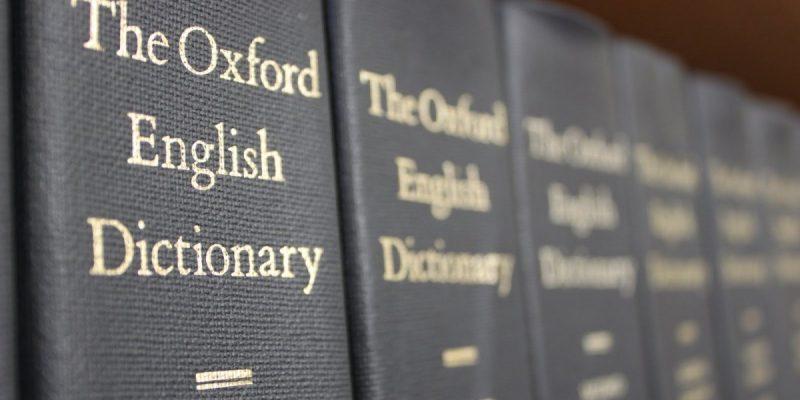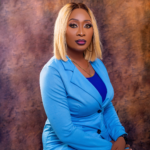The Oxford English Dictionary (OED), a global authority on the English language, recently added several Nigerian slangs to its lexicon, marking another milestone in the recognition of Nigeria’s rich linguistic and cultural contributions. This development highlights the dynamism of Nigerian English, a vibrant variant shaped by the country’s unique sociocultural landscape.
Among the latest entries are several terms that have long been part of everyday communication in Nigeria such as “Japa,” “419,” “Agbero” and “yahoo.”
Kingsley Ugwuanyi, a Nigerian research fellow who helped spearhead the inclusions, described his efforts at pushing for the recognition of Nigerian English. “This time, I not only drafted the most of the words but also had the incedible opportunity to provide their #pronunciations!” he wrote on LinkedIn.
Nigerian English, often enriched by pidgin and indigenous languages, has become a fertile ground for inventive expressions. The inclusion of these slangs in the OED demonstrates their growing global relevance and the increasing acknowledgement of Nigeria’s influence on contemporary English.
The inclusion of these terms in the OED goes beyond linguistic recognition; it underscores the global reach of Nigerian culture. Nigerian music, films, and literature have gained international acclaim, often introducing the world to unique expressions rooted in the country’s diverse traditions.
Terms like “suya” and “abi,” now mainstream in Nigerian pop culture, have transcended local usage, resonating with diasporic communities and beyond.
Moreover, the addition of these slangs highlights the evolving nature of English as a global language. The OED frequently updates its entries to reflect how English is spoken across different regions.
By incorporating Nigerian slang, the dictionary acknowledges the influence of African English speakers in shaping modern linguistic trends.
The spread of Nigerian slang owes much to social media, where platforms like Twitter, Instagram and TikTok serve as amplifiers of cultural expression. Viral memes, skits, and conversations have brought Nigerian English to a wider audience, often accompanied by context-rich content that makes them easily understandable. Social media has become a cultural melting pot where Nigerian English finds its way into global conversations.
While the recognition of Nigerian slang in the OED is a cause for celebration, some critics argue that it might dilute the originality of these expressions. They fear that as these terms gain international acceptance, they may lose their cultural nuances.
Additionally, there is concern about the potential for misinterpretation or misuse by non-native speakers unfamiliar with their deeper meanings and contexts.
Others see it as a stepping stone for further recognition of African languages and dialects. They argue that more indigenous words, not just slang, should be incorporated into global lexicons to truly reflect the continent’s linguistic diversity.
A Boost for Nigerian Identity
For Nigerians, the inclusion of their slangs in the OED is a source of pride and a reaffirmation of their cultural identity. It provides a sense of ownership over a segment of the English language, showcasing their creativity and resilience in adapting and reshaping a colonial legacy into something uniquely theirs.
In many ways, this milestone mirrors the global success of Afrobeats and Nollywood, industries that have put Nigeria on the map for their artistic innovation. Just as Nigerian music and films have gained international acclaim, so too is the country’s linguistic ingenuity earning its rightful place in global discourse.
The Oxford English Dictionary (OED), a renowned authority on the English language, has recently included several Nigerian slang terms like "Japa," "419," "Agbero," and "yahoo" in its lexicon. This inclusion marks a significant milestone in recognizing Nigeria's rich linguistic contributions and highlights the vibrant and dynamic nature of Nigerian English, which is heavily influenced by pidgin and indigenous languages. The addition underscores Nigeria's growing influence on contemporary English and reflects the global reach of its culture through music, films, and literature.
A Nigerian research fellow, Kingsley Ugwuanyi, played a crucial role in pushing for the recognition of these slangs, contributing to their definitions and pronunciations. This development illustrates the evolving nature of the English language as it adapts to include regional variations from around the world. Social media platforms have facilitated the spread of Nigerian slang, bringing it into global conversations and helping it resonate with broader audiences.
While some critics express concern about the potential dilution or misinterpretation of these expressions as they gain international acceptance, others view it as an opportunity for broader acknowledgment of African languages and dialects in global lexicons. For Nigerians, the OED's recognition of their slang terms is a source of national pride and cultural identity, reflecting the creative and resilient adaptation of English into something uniquely Nigerian, much like the global successes of Afrobeats and Nollywood.






